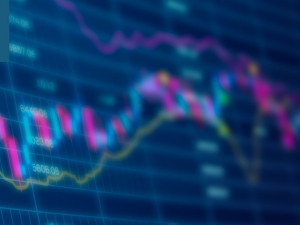
Johnson’s tactics backfiring
Morning mid-market rates – The majors
19th December: Highlights
- 25% Chance of no-deal Brexit
- Data inconclusive for short-term rates
- German business confidence on the rise despite activity falling
Domestic issues building up
The fact that Prime Minister Boris Johnson has a significant majority in Parliament means there is no degree of control over what the Government can do. While this may be a certain amount of “sabre rattling” which Brussels has ignored for now, enshrining the UK’s determination to have Brexit completed by the end of next year sets a deadline which may be impossible to keep.
Far from underlining Johnson’s determination to keep the Brexit “pot boiling” once the now inevitable approval by Parliament of the slightly amended Withdrawal Bill allows the UK to leave at the end of next month, it has opened up wounds that were supposed to be left to heal.
The pound has reacted badly to the resurrected no deal concerns falling by its largest margin in two years.
Yesterday, it reached a low of 1.3059, closing at 1.3087 as the market’s euphoria over the election result dissipated.
Today sees Mark Carney’s final MPC meeting as Governor of the Bank of England. We could be forgiven for believing that the post had become ceremonial as the final years of his term were submerged in the maelstrom of Brexit. Carney largely fitted with the post financial crisis model of bureaucratic Central Bank Heads, try as he might to raise his profile. It is doubtful the appointment of a replacement will be as flamboyant as the ECB but if the move to a female remains, Shriti Vadera, current Chairperson of Santander or Minouche Shafik, Director of the London School of Economics both “fit the bill”.
Tomorrow will see the market finally allowed to quieten down for the Holiday season with Sterling back to square one. Volatility is sure to increase in the New Year following months of historically low ranges as the market, despite trader’s feeling of tauper over yet more Brexit wrangling livens up again
Considering your next transfer? Log in to compare live quotes today.
Republicans label impeachment a “political stunt”
Trump became just the third President in history to be impeached. While Congress debated two articles of impeachment; using undue influence and obstructing Congress, Trump was addressing his adoring followers at an election rally in Michigan, addressing the issue but criticizing the “radical left” for being consumed with envy, rage and hatred.
It may be that Trump has “sailed close to the wind”, using practices that are not wholly acceptable in the business world he inhabited before becoming President, in the political arena he faces more oversight than he is used to, with his enemies possessing greater power to harm him than he has experienced in the past.
The Senate trial, only the third in history has been labelled a “witch-Hunt by Trump and his supporters. The Senate will control the impeachment trial, but the general rules are vague and rooted in history.
It will be a Republican Mitch McConnell who has the final say over the format of the “trial” but his authority could be limited if Democrats pressure Republicans who are not loyal to Trump to join then in trying to oust him (Trump) from office.
The financial market barely batted an eye over the result of Congress’ deliberations. Since Republicans control the 100 seat Senate with a 53-47 majority, it is expected that Trump will be acquitted.
This week’s data releases, in particular industrial production, have been stronger than of late, creating further doubts as to the Fed’s actions in the first half of 2020, The odds now favour the Fed remaining on hold for the first six months of the year but the economy remains in a relatively unsettled state.
Yesterday, the dollar index traded in a narrow range between 97.19 and 97.48, finishing close to the high at 97.42
IFO reports finally provide a positive backdrop
While commentators concentrated on snippets of better data from Spain, Italy or France, the situation in the German activity has been smouldering, largely in the background.
Activity has declined month by month while inflation (a source or German pride) has dwindled. There is still a significant “national distinction” in the release of data which has led to region-wide releases being largely less significant. It can be compared to the release of poor U.S. NFP data yet the market being driven by better results from Kansas or Nevada.
At some point Eurostat will probably do away with the release of individual nations data, labelling it irrelevant. That will take fiscal union and will probably draw claims of a cover up.
Meantime, yesterday’s IFO report in Germany improved in all three categories; business climate, current assessment and future expectations. While the improvements were hardly stellar, they form a basis for slow but steady growth in Q1&2.
Counter intuitively, the single currency lost ground yesterday, falling to a low of 1.1110, closing at 1.1119, still comfortably above support at 1.1080.

About Alan Hill
Alan has been involved in the FX market for more than 25 years and brings a wealth of experience to his content. His knowledge has been gained while trading through some of the most volatile periods of recent history. His commentary relies on an understanding of past events and how they will affect future market performance.”



